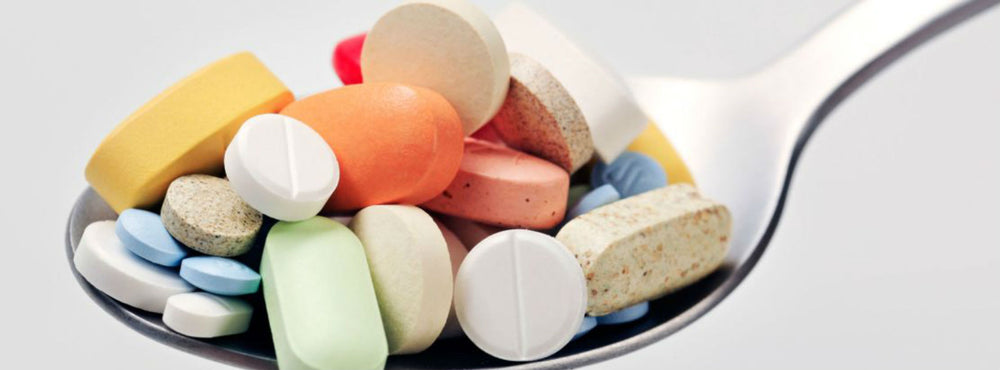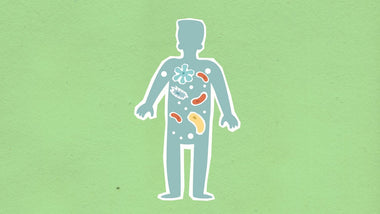Supplements don’t work. OK ... maybe one does.

Vitamins and minerals have long been used to treat nutrient deficiencies. However, in recent decades supplements have been heavily promoted as a means to achieve better health and longevity. No wonder that even as far back as 2012, it was estimated that 52 percent of the US population were taking supplements. Globally, the supplement market is valued at over $178 BILLION per year (as of 2023) and growing. Despite high use, there is still no agreement on whether individual vitamins or minerals or combination supplements should be taken to prevent or treat heart disease.
My patients often ask me about supplements and my answer has always been the same: “Overall, the study data on supplements is really disappointing. They don’t seem to help much, but probably won’t hurt you either. I’m OK with it if you want to keep taking them. But we’re still going to focus more on the food.”
Personally, the only supplement I take is vitamin D.
But based on the latest research, my answer and personal practice will be changing – a bit.
A group of scientists just reviewed nearly 180 randomized controlled clinical trials on vitamin and mineral supplement use to determine if any benefit existed. And what did they discover? That the four most commonly used supplements—multivitamins, vitamin D, calcium and vitamin C—showed no consistent benefit for the prevention of heart disease, heart attack, stroke or death from any cause. Period.
Not only that, niacin (vitamin B3) and antioxidant supplements (think Vitamin E) were associated with an actual increase in risk of all-cause mortality.
The only supplement with possible benefit? Folate (folic acid, vitamin B9). Folic acid alone and B-complex vitamins in which folic acid was a component did show a reduction in stroke – to the tune of 20%. But that data came from only one study - the China Stroke Primary Prevention Trial. Why is that fact significant? Because, unlike in the US, food is not routinely supplemented with folate in China. So the results of that trial may not necessarily translate to individuals living in America.
In addition, and before you run to Costco to get your giant bottle of folate, remember that the data on health benefits of food is vast and consistent and trumps supplements all day long. For example,
- adding 10 grams of whole food fiber per day – the amount you find in 2 servings of Step One Foods – has been shown to decrease the risk of experiencing a heart attack by 14% and to reduce the risk of dying from any cause by 27%
- adding just 1 piece of fruit per day reduces your risk of stroke by 6%. Based on natural antioxidant content, two servings of Step One Foods provides at least 3 fruit servings, giving you a different way to get to that same 20% stroke reduction seen in the China trial.
And remember that folate can also come from food. The recommended daily allowance (RDA) of folate for non-pregnant non-lactating adults is 400 micrograms per day. That amount can be attained by eating toast with sliced avocado for breakfast, adding a half cup of lentils to your lunch salad, and snacking on broccoli and hummus in the afternoon.
So how does this new data change my answer and practice?
Personally, I will continue to take my vitamin D. I’ve been tested and my levels are low, and it makes sense to treat a deficiency. And I'm going to continue enjoying avocado toast for breakfast and try to eat more lentils.
Professionally, I will now search for niacin and vitamin E in my patients' supplement list and advise them to avoid those. And when I review my patients’ diets, I will be paying special attention to the inclusion of folate-rich foods (see table below). For those individuals not getting enough folate through their diet, I will be recommending a folic acid supplement.
|
Selected Food Sources of Folate and Folic Acid |
||
|
Food |
mcg folate |
Percent RDA |
|
Beef liver, braised, 3 ounces |
215 |
54 |
|
Spinach, boiled, ½ cup |
131 |
33 |
|
Black-eyed peas (cowpeas), boiled, ½ cup |
105 |
26 |
|
Breakfast cereals, fortified with 25% of the DV |
100 |
25 |
|
Rice, white, medium-grain, cooked, ½ cup |
90 |
23 |
|
Asparagus, boiled, 4 spears |
89 |
22 |
|
Spaghetti, cooked, enriched, ½ cup |
83 |
21 |
|
Brussels sprouts, frozen, boiled, ½ cup |
78 |
20 |
|
Lettuce, romaine, shredded, 1 cup |
64 |
16 |
|
Avocado, raw, sliced, ½ cup |
59 |
15 |
|
Spinach, raw, 1 cup |
58 |
15 |
|
Broccoli, chopped, frozen, cooked, ½ cup |
52 |
13 |
|
Mustard greens, chopped, frozen, boiled, ½ cup |
52 |
13 |
|
Green peas, frozen, boiled, ½ cup |
47 |
12 |
|
Kidney beans, canned, ½ cup |
46 |
12 |
|
Bread, white, 1 slice |
43 |
11 |
|
Peanuts, dry roasted, 1 ounce |
41 |
10 |
|
Wheat germ, 2 tablespoons |
40 |
10 |
|
Tomato juice, canned, ¾ cup |
36 |
9 |
|
Crab, Dungeness, 3 ounces |
36 |
9 |
|
Orange juice, ¾ cup |
35 |
9 |
|
Turnip greens, frozen, boiled, ½ cup |
32 |
8 |
|
Orange, fresh, 1 small |
29 |
7 |
|
Papaya, raw, cubed, ½ cup |
27 |
7 |
|
Banana, 1 medium |
24 |
6 |
|
Yeast, baker’s, ¼ teaspoon |
23 |
6 |
|
Egg, whole, hard-boiled, 1 large |
22 |
6 |
|
Vegetarian baked beans, canned, ½ cup |
15 |
4 |
|
Cantaloupe, raw, 1 wedge |
14 |
4 |
|
Fish, halibut, cooked, 3 ounces |
12 |
3 |
|
Milk, 1% fat, 1 cup |
12 |
3 |
|
Ground beef, 85% lean, cooked, 3 ounces |
7 |
2 |
|
Chicken breast, roasted, ½ breast |
3 |
1 |
Reference: NHI Folate Fact Sheet
How does Step One Foods compare to supplements? Dr. Klodas explains.

Tested & Proven Results.
- Cardiologist formulated
- Supported by over 500 publications
- Clinically-proven, in a double-blind randomized trial with Mayo Clinic and The University of Manitoba
80% of participants lowered their cholesterol in just 30 days. With just two servings per day, Step One Foods offers a proven-effective way to naturally lower LDL (bad) cholesterol.
Get heart health tips and articles like this, delivered right to your email.
New articles every week.
You may also like...

Why Two People Can Eat the Same Calories—and Only One Gains Weight

The Heart of the Matter: The Engine That Makes Whole-Body Health Possible

You don’t need to avoid foods with cholesterol…except for these


